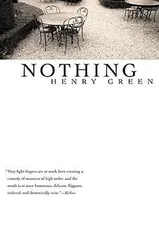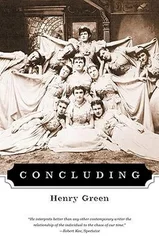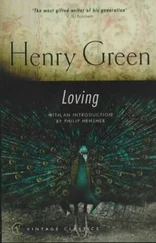“So I thought I’d look you up, old man,” James was saying for the third time, “for old times’ sake,” he said, “and see how you were looking after yourself, after your experiences, I mean. Because I didn’t think you looked too grand when you were down my way, you know, old chap.”
Ridley sat opposite, right back in an armchair, his head sideways along the back, eyelashes thick as a hedge, watching the people in the corner. Summers thought the boy wouldn’t be so bored if he knew about his mum. And he held it against James, that this man had let Rose get away.
“Something I want to show you,” he brought out at last, with great difficulty.
“Why, of course,” James agreed at once, but Charley was looking with significance at the child.
“Right you are,” James said. “I say, Ridley,” he went on, “I left my handkerchief in our room. You remember which that is, don’t you now? You’d never believe what a bad memory he has,” James said to Summers, like a woman, “there are times I send him for something, and he forgets all about it while he’s on the way. It’s 56. You won’t lose that will you?”
“What, now?” Ridley demanded rude.
“If you wouldn’t mind, old chap. Your dad wants to blow his nose.”
At this Ridley looked full at Summers, so that this man’s heart jumped right up into his neck. Charley dropped his eyes, but not before he had recognized contempt in what he took to be his son’s.
“Oh all right,” the boy said, and slouched off.
“Lord, he reminds me at times of his mother,” James began when the child could not hear. “He’s got just the way she had when she didn’t want to do something. D’you catch it now and again? But you wanted to ask me? What is it?”
“A certain person,” Charley said, distracted.
“Why, my dear good lad,” James said, looking about him. “Where? Not in this lounge, surely?”
“Only ten minutes off,” Charley said.
“Someone we used to know?” James asked, as though suddenly talking of a brothel.
“They’re usually in about now,” Charley said, because he could not explain.
Meantime Miss Whitmore, who would soon be off to her work, was feeding the cat and worrying about her mother. Now that her mum was evacuated, Nance came under the heading of mobile labour, which is to say that, if the Ministry officials got to know she was alone, she could be sent anywhere in England, even be put in uniform and packed off where the Japs might get at her. Of course she had not told the Ministry when her mother went, who had bought her own ticket and agreed not to claim the evacuation money, to save Nance from the consequences. But, all the same, the girl was worried. Her mum was on her own, having quarrelled some years back with Mr Grant, and if anything should happen there was only herself left. So the girl did not want to be sent away. Besides they were comfortable on what she made each week, and the small bit Mr Grant still contributed every Saturday. And the day before, one of her friends said she’d had a visit from the officials. Oh, they’d been perfectly polite of course, nothing anyone could take exception to, if it wasn’t that they’d more or less forced their way in, as if to search the premises. And they’d explained it was only that the country was so short of mobile women, so they were driven into coming to people’s homes, now their records had been lost in the bombing. Yes, they’d made themselves pleasant, and been perfectly respectful. But then Ellen had her mother, large as life. What would she do herself if they came here? She’d been so nervous all day she’d hardly been able to sleep, waiting for the knock on her door.
She was just saying aloud to the cat, “And what’d become of you, Panzer?” when there was the knock, like a rap right on her heart. Her mouth fell open. She covered it with a hand, as Mrs Grant had done.
Charley had easily been able to persuade James to come along without having to tell him who, or what, he was to find. One of the reasons was that James did not want to lose sight of Summers. At one time he could have thought Charley was seeing too much of Rose, but he now found Charley would be the main link left with the happy days which were fast slipping into the past. Also he considered him affected by his war experiences.
As he rang, Summers got behind so that, when she answered the door, her heart pounding, all she saw was the stranger. She took it very hard.
“So it’s come,” she said, dead white, and made way.
Charley naturally imagined this to be her reaction at being exposed. He could not understand, but he felt desperately ashamed of his part in bringing them together again. And, as James moved forward, Charley wished once more that he could be unseen.
But of course, the moment Miss Whitmore saw Charley she knew the stranger could not be a Ministry snooper, and she was so relieved that she grew angry.
“So it’s you, is it?” she said.
With acute dread and anxiety Summers slowly raised his eyes to James’ face. He was terribly frightened to see on it the last expression he had expected. So that he was made to feel crazy. For James stood, just watching, polite and lost, though his upper lip trembled.
Then Charley knew he was back in a trap.
“What is it now?” she asked him.
He could not answer.
James thought the best thing was to introduce himself.
“I’m James Phillips,” he said, quite ordinarily.
“Rose’s husband?” she said. It was obvious that she was profoundly shocked. “You?”
“That’s right,” he said, with what seemed to be complete calm. “Why, did you know her?”
There was a pause. Charley listened to his heart thumping.
“I’ll tell you what this is,” she said then, violently, yet as if searching in herself. “It’s not proper, that’s all.”
“What?” Charley said. He could not believe his ears again.
She turned on him. “Bringing this man here,” she shouted, and slammed the door shut, so she could not be heard on the staircase. “Think of it. Him that’s met his wife naked in bed with him, and you bring him along to me. Oh, it’s not proper,” she repeated.
Mr Phillips had gone rather white in his turn. But he kept his temper.
“I don’t see that you’re at all alike,” he said with truth and absolute conviction.
But Charley was beside himself. They must be playing some frightful game, and he blamed it on her. He remembered her bigamy that, as he thought, Mr Grant had spoken of.
“All very well acting the innocent,” he said, trembling all over, “but you’ve been married, haven’t you?”
“You swine,” she yelled, coming up to him. “You keep Phil’s name out of this, d’you hear? He died fighting for you,” she shouted and, bringing her hand up, she slapped his face hard, and it hurt.
“Here, that’s enough of that,” James said, pushing his way between them. But the harm was done. Charley sat down, quick, in the chair over which he had spilt the tea on another occasion, covered his face with his hands, and began uncontrollably trembling. “Died for me?” he kept on repeating.
“He’s been out in it, too,” James said quietly. “He’s just been repatriated.”
She burst into tears.
“What’s a girl to do?” she wailed.
Mr Phillips thought he was the most hurt of them all. Everything considered it was he who had been widowed, who had to look after their son, who could only show the boy microfilms of his mother. And what was this about? The girl was not like his Rose, quite apart from her dark hair. Certainly she did not behave in the least like. But he said gently,
“Well, my word, this is a party I mean to say …”
“Never knew such filth existed,” Charley muttered recovering.
Читать дальше












